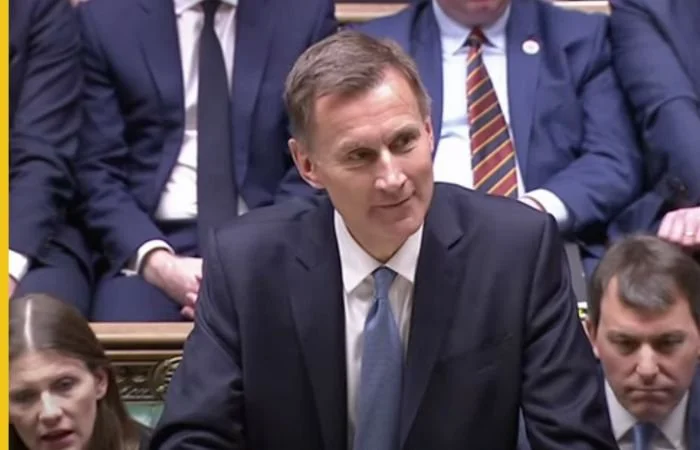Examining the fine print: How the Autumn budget really impacts SMEs
Optimism was the tone for Chancellor Rishi Sunak’s Autumn Budget, as he set the stage for his announcement by describing the UK’s economy as one “fit for a new age of optimism”.
The statistics he shared from The Office for Budget Responsibility (OBR) forecast a speedy recovery for economic growth and unemployment, giving this spending review more flexibility than previously expected.
Items such as Capital Gains Tax and Inheritance Tax which had been subject to high speculation weren’t at the forefront of the Chancellors agenda, but instead historic reforms to Alcohol taxes, NHS funding and the Universal Credit taper were the order of the day.
While there were no ground breaking items announced that shocked SMEs and business owners, there are some changes that could have a major impact on the tax relief which companies will be able to claim going forwards.
The team at Haines Watts, have analysed the finer details to understand how these items could impact businesses and shared their advice on how owners can look after their business’ tax position.
Martin Mann, Head of OMB Tax, Haines Watts London
The government seems to be determined to make the UK an international hub of innovation and technological advancement and offering tax reliefs to companies that conduct R&D activity is an important aspect. The Budget announcement is, in part, aimed at widening the scope of companies who may qualify for relief.
The government also recognises that based on the total R&D spend in 2019, only 53% was carried out by privately financed companies in the UK. Reliefs will therefore be refocused towards innovation in the UK.
As for other changes, the decision to extend the annual investment allowance limit of £1m to 2023 will be welcome by those unincorporated businesses that do not qualify for the super deduction and are embarking on a capital expenditure programme.
I think the big story of this budget is what was missing. No changes to capital reliefs or tax rates, which many expected. Good news for many clients who are contemplating a sale or undertaking planning involving CGT and IHT mitigation. There were also no changes to the pensions allowances so good news for those looking to fund their pension pots or looking to retire in the near future.
Jonathan Scott, Tax Partner at Haines Watts, Newcastle
Innovation is going to be crucial for recovery in the months and years to come, so it’s great to see the Government committing to £20bn per year on Research and Development, on top of the cost of R&D tax relief.
The inclusion of cloud computing and data costs in Research and Development Tax Relief is a huge step in the right direction when it comes to modernising the scheme and will have a massive impact on gaming businesses and financial services.
It’s also great to see that the temporary £1m cap on annual investment allowance has been extended until March 2023, which will be hugely beneficial for companies who are looking to invest in plant and machinery in the months and years to come. This will sit hand in hand with the Capital Allowance Super Deduction, which the Chancellor announced in the Spring Budget earlier this year.
Martin Gurney, Tax Partner, Haines Watts Swindon
We would typically spend hours after the Budget writing about the impact of tax changes within the Budget and their implications. The Chancellor has, to a significant extent, relieved us of this burden.
In terms of new tax measures introduced, there were very few. The Chancellor has attempted to bolster the struggling Arts and Creative sectors by enhancing the creative tax reliefs available, and similarly tried to help the Retail, Hospitality and Leisure sectors through rates discounts.
At the same time, he announced a move to expand R&D tax relief to cover cloud computing and data costs, with the focus moved to UK activity, in line with other jurisdictions. We already knew about the changes to the rates of corporation tax from 2023, and nothing was done to amend or withdraw these changes, but the Annual Investment Allowance threshold of £1m was extended to 31 March 2023.
Overall, this felt like a very neutral Budget designed to keep the economy stable in times of inflationary pressures and supply chain concerns. And finally, tomorrow is promised to no one. The Chancellor did not make any amendments to income tax but he did state his desire and intention to reduce tax rates by the end of this parliament. Watch this space, I guess!
Steve Tobin, Senior Tax Manager, Haines Watts Wirral
The Chancellor didn’t announce any new tax rises or nasty shocks for businesses in this Budget, so many business owners may be breathing a sigh of relief. However, this generally neutral Budget is counteracted with the pre-announced increases in Corporation Tax, National Insurance, and dividend tax rates. This is also on top of the tax grab last spring when the government froze several key thresholds, exemptions, and allowances.
As predicted, the devil is in the detail. We’ve looked closely at the details and within the Treasury’s press releases, there were a couple of items that are also of interest to businesses and individuals.
From 6th April 2022, the van benefit charge and the car and van fuel benefit charges will increase in line with Consumer Price Index (CPI) for the tax year 2022/23. This means an increase in benefits in kind for employees and an increase in Class 1A NIC for employers.
From now the deadline for taxpayers to report and pay Capital Gains Tax (CGT) after selling UK residential property will increase from 30 days, after the completion date, to 60 days. This is very welcome and should now mean that there is sufficient time to report and to pay the CGT liability.








